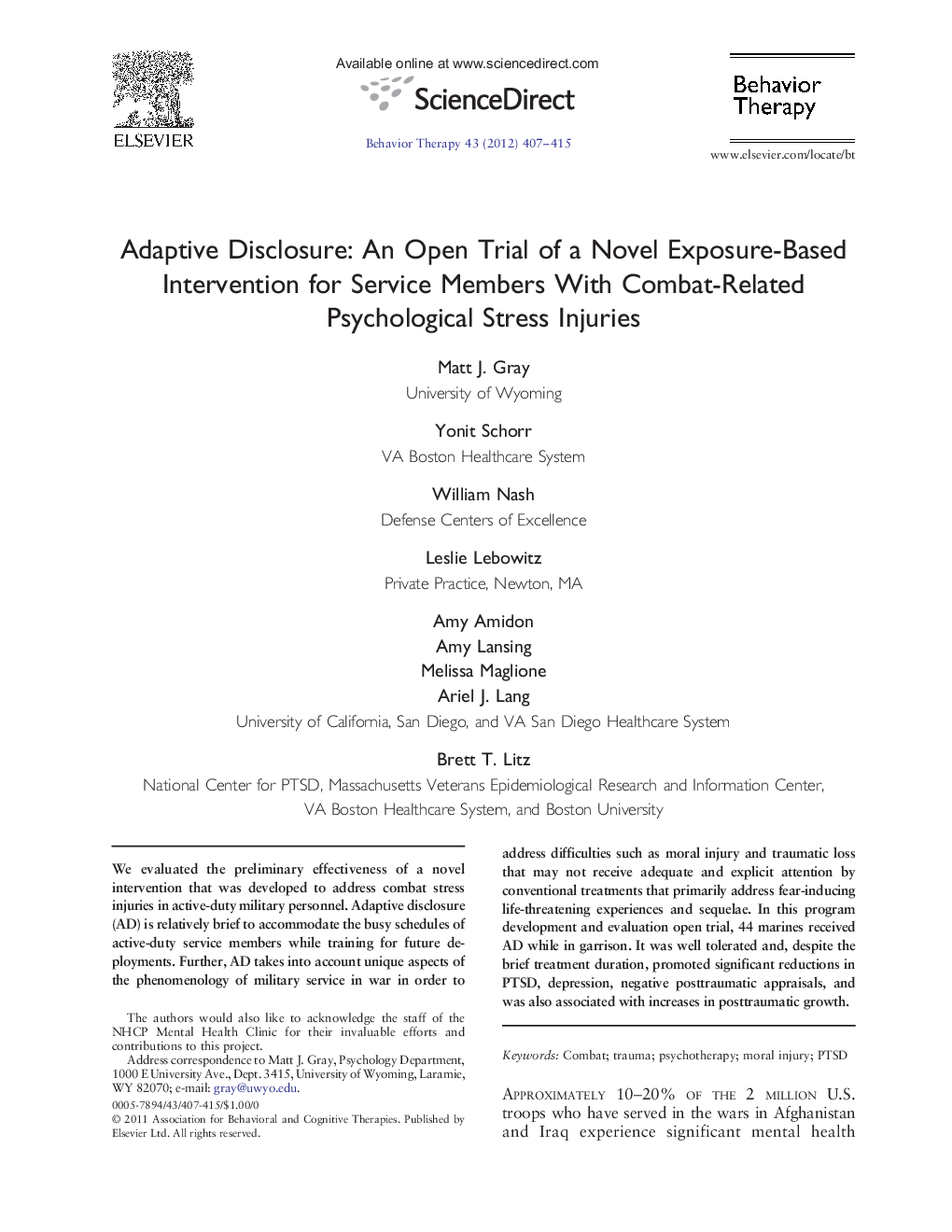| Article ID | Journal | Published Year | Pages | File Type |
|---|---|---|---|---|
| 901451 | Behavior Therapy | 2012 | 9 Pages |
We evaluated the preliminary effectiveness of a novel intervention that was developed to address combat stress injuries in active-duty military personnel. Adaptive disclosure (AD) is relatively brief to accommodate the busy schedules of active-duty service members while training for future deployments. Further, AD takes into account unique aspects of the phenomenology of military service in war in order to address difficulties such as moral injury and traumatic loss that may not receive adequate and explicit attention by conventional treatments that primarily address fear-inducing life-threatening experiences and sequelae. In this program development and evaluation open trial, 44 marines received AD while in garrison. It was well tolerated and, despite the brief treatment duration, promoted significant reductions in PTSD, depression, negative posttraumatic appraisals, and was also associated with increases in posttraumatic growth.
► Adaptive Disclosure (AD) is a novel exposure-based therapy designed to treat combat-stress among active-duty military personnel. ► In addition to focusing on PTSD and conventional life-threat-related anxiety, AD also seeks to address traumatic loss and moral injury. ► Results of an open trial demonstrate that AD is well-received by active duty Marines and is associated with large effect size reductions in PTSD and depression. ► Patients also demonstrated medium to large reductions in problematic posttraumatic cognitions and increases in posttraumatic growth.
